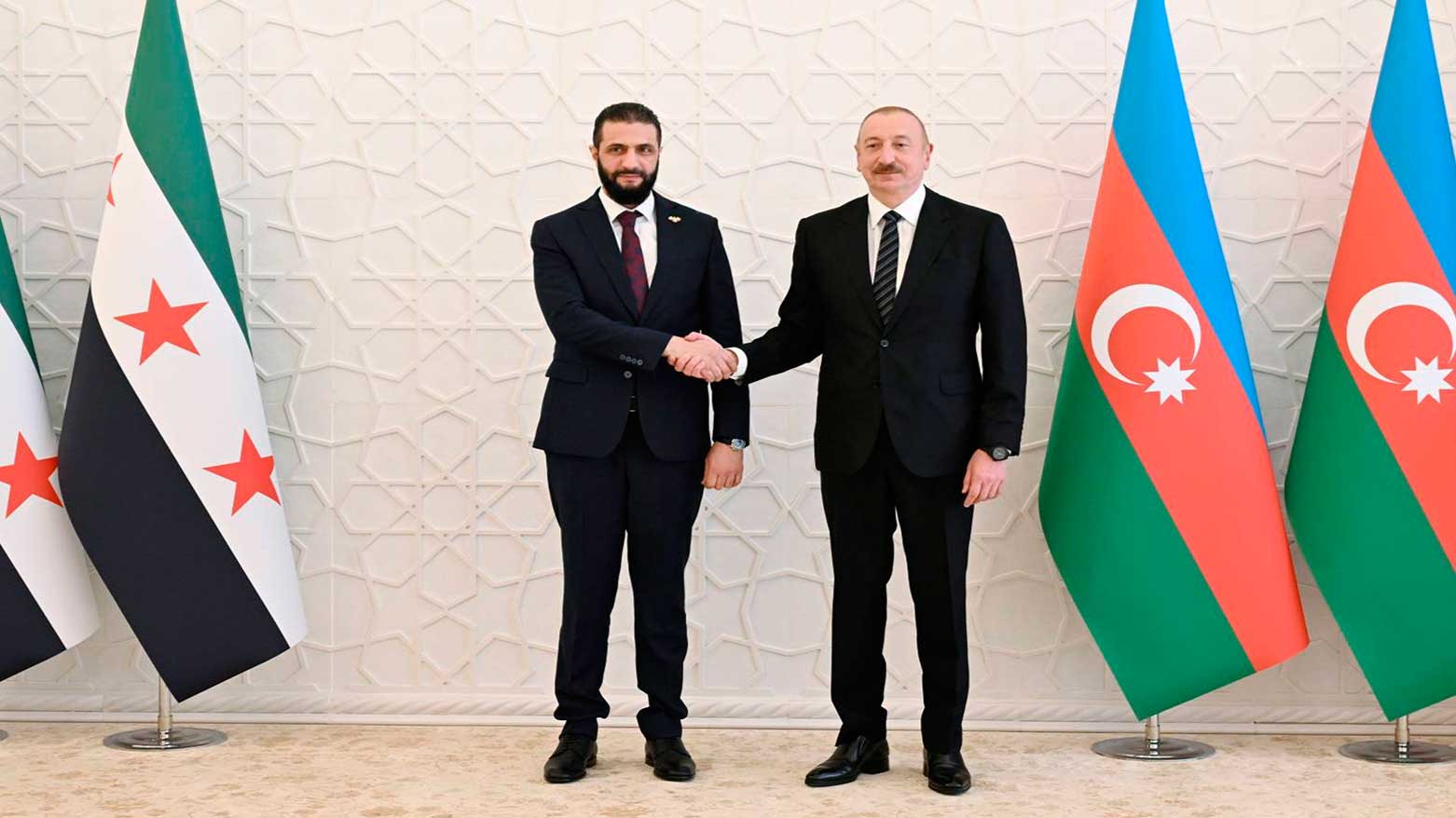Azerbaijan, Syria Pledge Energy Cooperation and Closer Ties in Post-Assad Era
According to a statement from the Azerbaijani president’s office, the two leaders emphasized joint plans to export Azerbaijani natural gas to Syria via Turkey and discussed Azerbaijan’s potential involvement in rebuilding Syria’s war-ravaged energy infrastructure.

ERBIL (Kurdistan24) — The leaders of Azerbaijan and Syria on Saturday pledged to strengthen bilateral cooperation—particularly in the energy sector—as they seek to rebuild ties strained under the rule of former Syrian President Bashar al-Assad, according to the Associated Press.
Azerbaijani President Ilham Aliyev welcomed Syria’s interim leader Ahmad Al-Sharaa to Baku, expressing hope that the visit would “significantly contribute to the development of bilateral relations.” Al-Sharaa, who assumed leadership following the toppling of Assad’s regime in December, thanked Aliyev for Azerbaijan’s “brotherly support to Syria” and acknowledged that Assad’s government had damaged Syria’s foreign relationships, including with Baku.
According to a statement from the Azerbaijani president’s office, the two leaders emphasized joint plans to export Azerbaijani natural gas to Syria via Turkey and discussed Azerbaijan’s potential involvement in rebuilding Syria’s war-ravaged energy infrastructure.
The deepening ties between Baku and Damascus reflect the shifting geopolitical landscape in the Middle East following Assad’s ouster. The new Syrian authorities maintain close relations with Turkey, a key Azerbaijani ally. Both Turkey and Azerbaijan have worked in tandem to stabilize Syria and reduce regional tensions—particularly those involving Israel.
In April, Azerbaijan hosted technical discussions between Turkish and Israeli officials to establish a de-escalation mechanism aimed at preventing accidental clashes in the Syrian theater. Baku’s expanding diplomatic role has positioned it as a quiet but effective intermediary among regional players navigating the post-conflict realignment in Syria.
As Syria’s new leadership works to re-engage with the international community, energy cooperation and reconstruction appear central to its strategy—opening the door to deeper economic and strategic ties with countries like Azerbaijan.
